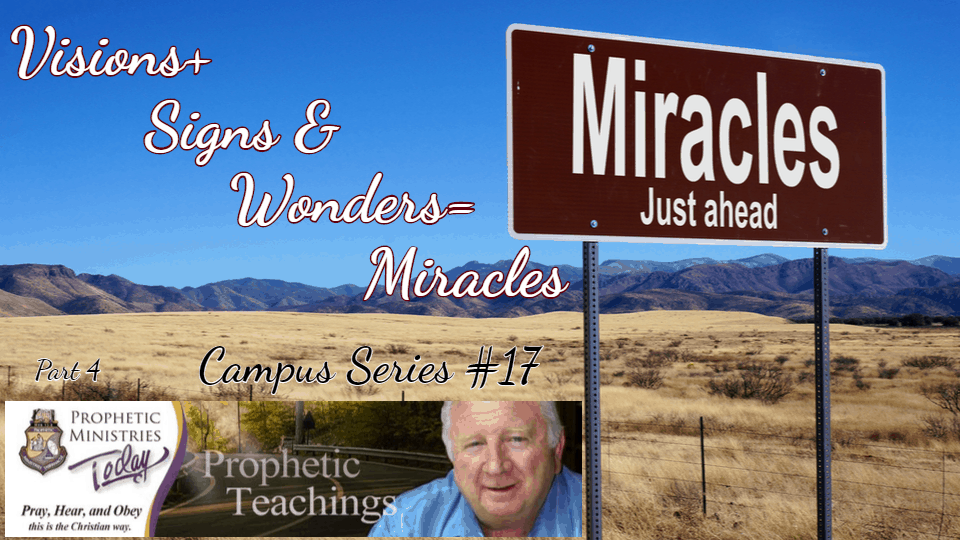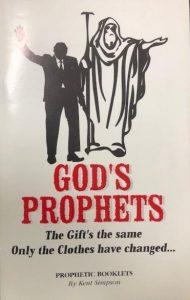The Road to Miracles
Visions, Signs, Wonders & Miracles-Manna: Meaning Behind the Miracles
Manna, the Bread from Heaven, was a daily miracle the Israelites failed to truly appreciate during their time in the Wilderness. When Christ came as the Bread of Life, His own Disciples failed to recognize the significance of His most famous miracles and their prophetic symbolism.
After the Death of John the Baptist (ref. Matthew 14: 1-12), Jesus retreated in a boat to Bethsaida (ref. Luke 9:10), a fishing town on other side of the Sea of Galilee (ref. John 6:1), but was pursued by a great crowd, which arrived ahead of Him at the shoreline, waiting to be healed and taught (ref. Matthew 14:13-14; Mark 6: 31-34; Luke 9:10-11; John 6:1-2).
Seeing and being near Christ was so important to the congregation, that, rather than observing the Holy Feast in their family homes, which was typical, they were in the middle of a grazing pasture on the afternoon right before Passover, which would begin as the sun set (ref. John 6:4).
The significance and importance of observing the Passover Feast was not lost on Jesus (ref. Numbers 9:13) and He turned to Disciple Phillip asking “Where are we to buy bread for these people to eat?” Phillip failed to recognize that Christ was testing him and his thought processes and Phillip calculated that even with six months’ worth of wages of two hundred denarii, they couldn’t even afford to feed them more than a morsel apiece (ref. Mark 6: 35-37; John 6:5-7).
A young boy, most likely a local from the Bethsaida fishing community, offered what may have been his portion of his family’s Passover meal. Because the Jewish communities had already ritually rid their homes of all flour, which had been exposed to leavening (ref. Deuteronomy 16:3-4), the bread that he presented would have been the unleavened Matzah served during the Passover meal. The fact that the bread is made out of Barley, the grain of the poor, demonstrated that the boy may have been a peasant and suffered from food insecurity, which was only more intensified by the fact that all other grain was now out of the house in preparation for Passover, so these pieces of bread and fishes he had humbly donated were the only sources of food he had.
The Sea of Galilea is home to the only fresh water sardine, a popular snack and spread in the region, and was probably one of the more plentiful fish caught and processed in the village. The Greek word “opsarion” used to describe the two small fish, implies they are not meant to act as an entrée in a meal, but serve as a savory condiment, similar to the paste Christ dipped His piece of bread in during The Last Supper a year later (ref. Matthew 26:23; John 13:26). The fact that the boy’s family could only contribute a basic condiment to their Passover meal, rather than the required lamb (Exodus 12:3), further highlighted their poverty and the relative worth of his gift.
Nevertheless, the Disciples saw the insignificant five barley unleavened loaves and two small fish as nothing compared to what was needed to feed so many hungry people, numbering around five thousand men, without counting women and children. Jesus ordered His Disciples to have them sit down in the uncultivated grassy pastures in groups of fifty before reciting the “HaMotzi” blessing which is the prayer over the unleavened Passover Matzah bread (ref. Matthew 14:19; Mark 6:41; Luke 9:16; John 6:11).
Baruch atah A-donay, Elo-heinu Melech Ha’Olam Hamotzi lechem min haaretz.
Blessed are You, Lord our God, King of the Universe, Who brings forth bread from the earth.
After the blessing, Christ’s Disciples distributed the bread and fish to the crowds and after they had all eaten their fill, He instructed His Disciples to gather all the leftovers which amounted to twelve hand baskets. After the miracle of multiplication of the loaves and fishes, many people sought to force Jesus to serve as their King, having recognized that He was “indeed the Prophet who is to come into the world” but still they still incorrectly believed that His Kingdom was Physical and Political rather than Spiritual.
This lack of understanding continued the next day when the crowds went to Capernaum to find Jesus, looking to receive more food. Christ chastised them for looking for food that would fade away like the Manna that their forefathers ate in the Wilderness. After declaring Himself the Bread from Heaven and the Bread of Life, and whoever ate of this bread would live forever, and that It is the Spirit that gives life because the flesh is useless, many followers left him, confused and perplexed or disappointed that Christ was promising something spiritual and intangible (ref. John 6:22-59).
While Jesus was in the Gentile district of Tyre and Sidon, a Canaanite woman from that region came out and started shouting “Have mercy on me, Lord, Son of David; my daughter is tormented by a demon.” After initially ignoring her and then being prodded by the Disciples, Christ explained that He was “sent on to the lost sheep of the House of Israel” and that “It is not fair to take the children’s food and throw it to the dogs”. The Canaanite woman humbly replied “Yes, Lord, yet even the dogs eat the crumbs that fall from their master’s table.” He was impressed with her answer, declaring “Woman, great is your faith! Let it be done for you as you wish.” And her daughter was healed (ref. Matthew 15:21-28; Mark 7:24-30).
Jesus left the district and went to the region of the Decapolis, a group of ten Roman cities to the north of Galilee, where people brought their sick and saw “the mute speaking, the maimed whole, the lame walking, and the blind seeing.” And these foreigners “praised the God of Israel” (Matthew 15: 29-31; Mark 7:31-37). After healing the sick for three days, Jesus decided that the crowds should be fed before they traveled back home.
Unlike the feeding of the multitude of 5,000 Jews, Christ followed the Roman custom of separately blessing bread and meats when He took seven loaves and blessed them before distributing them, then blessing the few small fish and sending those out afterwards. Christ again instructed His Disciples to gather up the remnants after the foreigners had had their fill of food and it filled seven large full-body (ref. Acts 9:25) woven baskets.
Later, when Christ questioned His Disciples about the importance of these two miracles, they suspected that He was scolding them for not bringing bread for their trip. He stressed the numbers’ symbolic significance. The miracle of feeding 5,000 Jews with five fish and two loaves during Passover, which resulted in 12 hand baskets of leftovers was representative of the Jewish Pentateuch (Their five books of scripture and law) and the twelve tribes of Israel. The feeding of 4,000 Gentiles using seven loaves and a few fish represented the four corners/directions (North, South, East, West) symbolizing the rest of the World while seven was the Gentile number for completion.
Christ first came to save the House of Israel, but they were too concerned with physical matters such as food and establishing a physical political state, failing to recognize that Christ came to serve as the Bread of Life, giving eternal spiritual life. While they were foreigners, the Gentiles in the region were more receptive to Christ’s message and praised the God of Israel. But despite seeing the miracles firsthand and Christ stressing the most important symbols, His Disciples also thought Jesus was talking about foodstuffs, not realizing that He was saying that He came to provide Eternal Life to All Peoples, whether Jew or Gentile.
While we will be growing and raising food on the Campus, to nourish our bodies and those in the surrounding community, we recognize that the satisfying of people’s spiritual needs will take precedence. We pray that you will follow the wisdom of the peasant boy from Bethsaida who trusted God to provide and gave his only food so that a historic miracle could happen. If you feel urged by the Holy Spirit to give a physical gift so that miracles can flow in our Age, we hope you not only recognize what God is doing but contribute to its completion.
Prepared by, Kent Simpson, Apostolic Prophet & Eric Sepulveda, PMT Administrator
For more prophetic media groups click here



